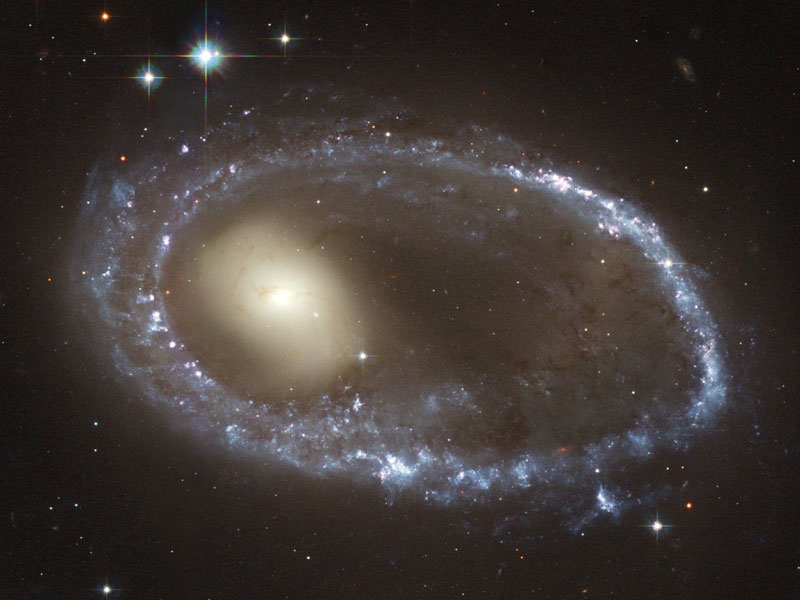
Pas de plus haute résolution disponible.
Ce fichier provient de un dépôt partagé et peut être utilisé par d'autres projets.
Sa description sur sa page de description est affichée ci-dessous.
Summary
Explanation: How could a galaxy become shaped like a ring? The rim of the blue galaxy pictured on the right is an immense ring-like structure 150,000 light years in diameter composed of newly formed, extremely bright, massive stars. That galaxy, AM 0644-741, is known as a ring galaxy and was caused by an immense galaxy collision. When galaxies collide, they pass through each other -- their individual stars rarely come into contact. The ring-like shape is the result of the gravitational disruption caused by an entire small intruder galaxy passing through a large one. When this happens, interstellar gas and dust become condensed, causing a wave of star formation to move out from the impact point like a ripple across the surface of a pond. The intruder galaxy has since moved out of the frame taken by the Hubble Space Telescope and released to commemorate the anniversary of Hubble's launch in 1990. Ring galaxy AM 0644-741 lies about 300 million light years away.
Copyright status
This image is public domain because it was first published by the National Aeronautics and Space Administration
Source
http://antwrp.gsfc.nasa.gov/apod/ap051022.html
Historique du fichier
Cliquer sur une date et heure pour voir le fichier tel qu'il était à ce moment-là.
| Date et heure | Vignette | Dimensions | Utilisateur | Commentaire |
|---|
| actuel | 10 avril 2007 à 03:28 |  | 800 × 600 (72 kio) | Ashcraft | Explanation: How could a galaxy become shaped like a ring? The rim of the blue galaxy pictured on the right is an immense ring-like structure 150,000 light years in diameter composed of newly formed, extremely bright, massive stars. That galaxy, AM 0644-7 |
Utilisation du fichier
La page suivante utilise ce fichier :

